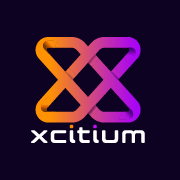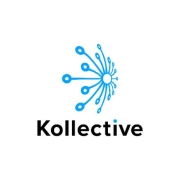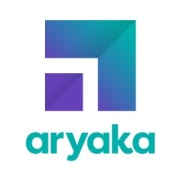CDN, or Content Delivery Network, improves website performance by distributing content across multiple locations. This reduces load times and bandwidth consumption, enhancing user experiences globally.
A Content Delivery Network leverages a network of servers strategically located to deliver content based on the user's geographical location. This results in faster loading speeds and reduced latency. Users benefit from increased reliability and less downtime, making content accessible under heavy traffic conditions. As businesses scale, CDNs offer essential flexibility to accommodate growing demands effectively.
What are the key features of a CDN?In industries like e-commerce, media, and online gaming, CDNs are crucial for handling high volumes of traffic and ensuring content availability at all times. For online retailers, it translates to quicker page load times, directly impacting conversion rates. Streaming services utilize CDNs for seamless content delivery, avoiding buffering and maintaining high-quality video playback. Educational platforms use CDNs to provide stable access to resources for a geographically diverse student base.
CDNs are highly beneficial for organizations looking to expand their digital presence and reach audiences worldwide. They address common internet challenges such as slow load times and interrupted service, thereby delivering content efficiently and ensuring an optimal user experience.
| Product | Market Share (%) |
|---|---|
| Cloudflare | 19.1% |
| Akamai | 15.0% |
| Azure Front Door | 12.0% |
| Other | 53.9% |









































A CDN (content delivery network or content distribution network) is a network of proxy servers that are linked together to deliver internet content. In order to improve connectivity and speed, a CDN places servers at the different networks’ internet exchange points (IXPs). IXPs are where various internet providers connect, allowing each other access to traffic from different networks. By connecting to these high-speed, highly interconnected locations, CDN providers are able to reduce both costs and transit time of content delivery.
In addition to placing servers in IXPs, CDNs also optimize client/server data transfers by placing data centers strategically around the globe and enhancing security. They then store a cached version of the content at multiple points of presence (PoPs) so that when content needs to be accessed, it can be accessed from the closest PoP rather than traveling a long distance to reach the user.
CDNs are designed to survive all kinds of internet congestion and failures.
CDNs (content delivery networks) do not host content and are not a replacement for a proper web host. That being said, CDNs do help to cache content at the network edge, improving overall website performance. Many websites opt for CDNs because they find that their performance needs are not being met by traditional web hosting services. CDNs are a good choice because they utilize caching to reduce hosting bandwidth, help prevent interruptions in service, and can also improve security.
Using a CDN (content delivery network) improves your users’ experience by delivering content to them faster. It also makes the experience for all users by ensuring that servers are geographically distributed and content does not have to travel from a location that is remote to some users. This allows your website to load faster and reduces latency.
By distributing bandwidth across multiple servers, CDNs also help to prevent site crashes in the case of a traffic surge.
A CDN is a crucial part of the optimization strategy for any mission-critical website, especially those with heavy traffic.
More than half of all internet traffic is served by CDNs (content delivery networks) and those numbers are on the rise. Pretty much everyone uses CDns.
CDNs are particularly popular on websites that operate on a larger scale, including in the sectors of:
• E-commerce
• Advertising
• Media and entertainment
• Mobile
• Healthcare
• Government
• Higher Education
• Online gaming
The only time it might not make sense to use a CDN is if you run a localized website, the users of which are all located in the same region as your host. In this instance, a CDN could actually worsen your website’s performance by introducing unessential connection point between users and a server that is already nearby.
The benefits of using a CDN (content delivery network) include:
A CDN improves website speed by reducing the physical distance between the server and the user. It achieves this by distributing copies of your web content to strategically located edge servers across the globe. When a user accesses your site, the CDN directs them to the nearest server, ensuring quicker load times and less latency. This can significantly enhance user experience and reduce bounce rates, which is critical for maintaining high levels of engagement and maximizing conversions.
What is the role of a CDN in SEO?A CDN can positively impact your SEO by speeding up content delivery, reducing page load times, and improving user experience. Search engines prioritize websites that offer faster load speeds, as these are deemed more user-friendly. A CDN helps in maintaining consistent page speed even during traffic spikes. This consistency contributes to higher SEO rankings, ensuring your site remains competitive in search engine results.
How does a CDN handle DDoS attacks?CDNs are equipped to handle DDoS attacks through their vast network of servers. They absorb and disperse malicious traffic across their global network, preventing any single server from becoming overwhelmed. CDNs also provide advanced mitigation strategies by identifying and blocking malicious requests while allowing legitimate traffic to pass through. This ensures your website remains accessible and functional even during potential attacks.
Why is CDN important for global user experience?A CDN is crucial for a global user experience because it minimizes latency issues that arise from long-distance data transmissions. By using edge servers located near your users, a CDN ensures that content is delivered quickly regardless of the user's geographical location. This results in faster load times and a consistent, high-quality experience for all users, which is vital for international businesses looking to maintain a competitive edge in various regions.
Can a CDN reduce bandwidth costs?Yes, a CDN can reduce bandwidth costs by caching content and delivering it from a nearby edge server, rather than the origin server. This reduces the amount of data that needs to be transferred from the main server, lessening the load and reducing the overall bandwidth consumption. For websites with heavy media content, this reduction translates to significant cost savings in terms of data transfer fees, making CDNs a cost-effective solution for businesses managing large-scale web properties.